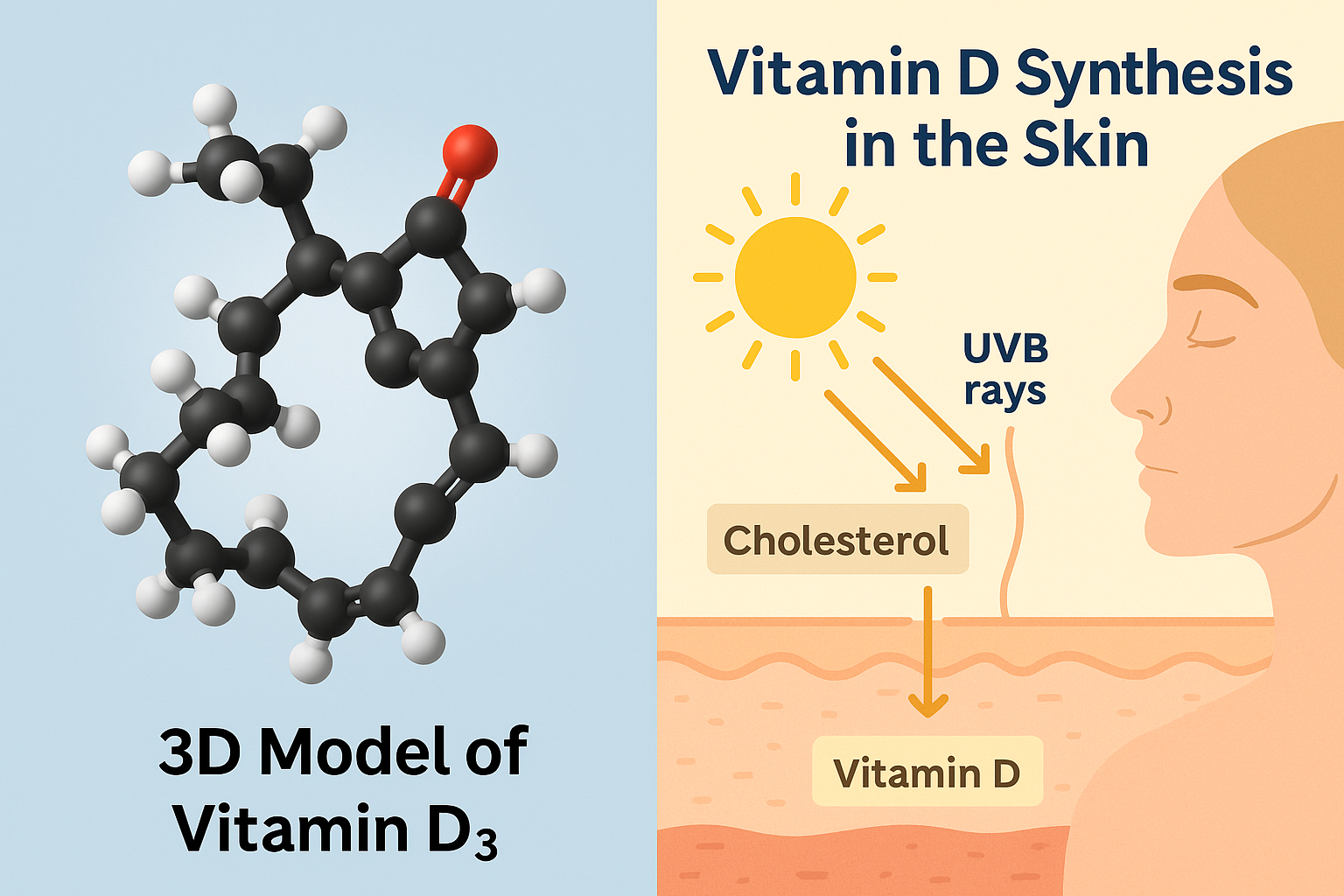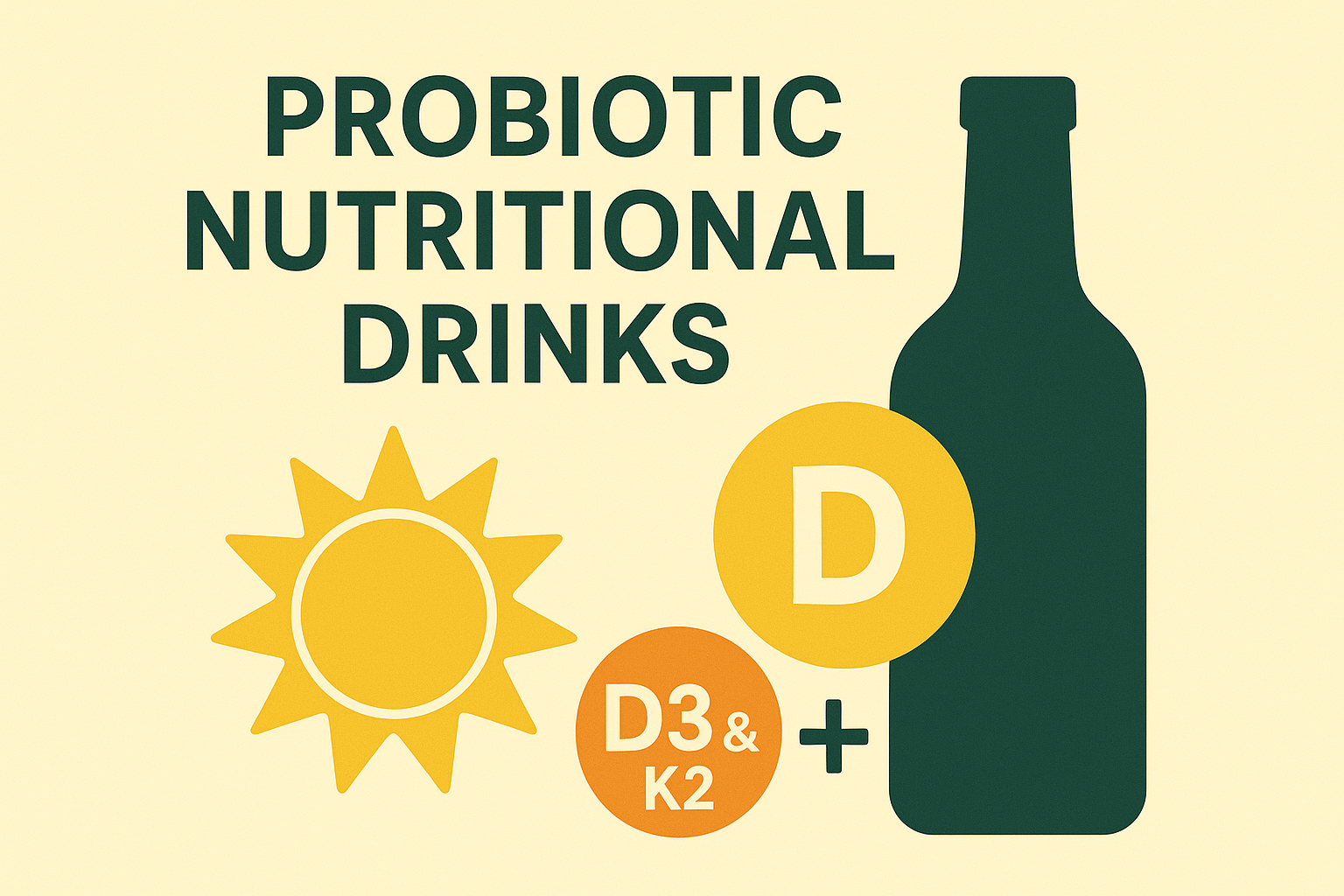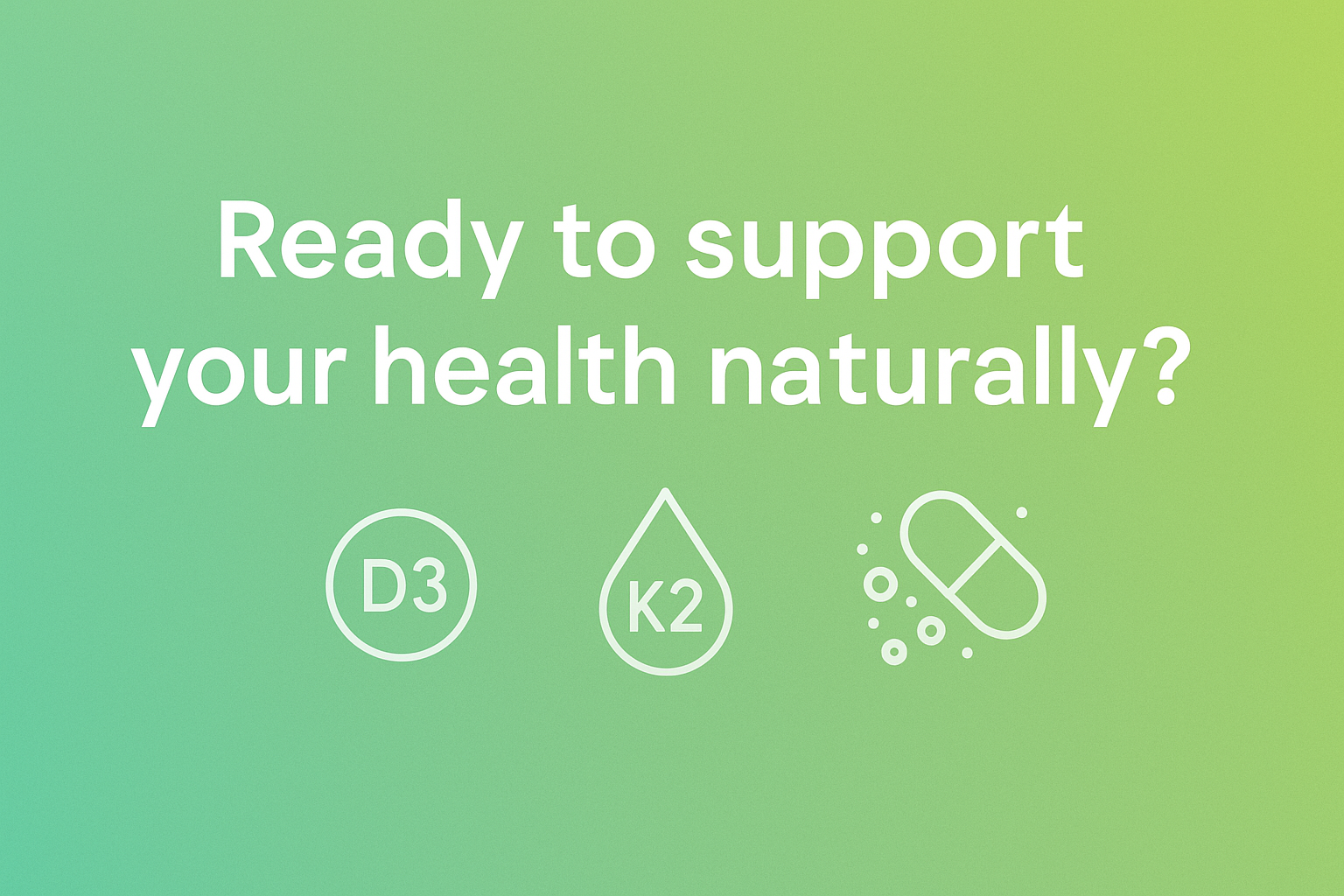How Vitamin D Is Made in the Body

This infographic combines the molecular structure of Vitamin D₃ with a step-by-step visual of how your skin produces it when exposed to UVB sunlight. It highlights why sun exposure and nutrient absorption are both critical for health.
Understanding Vitamin D3: The Sunshine Vitamin
Vitamin D3, also known as cholecalciferol, is the most biologically active form of vitamin D. It plays a crucial role in:
- Calcium Absorption – Helps the body absorb calcium from food and supplements.
- Bone Strength – Essential for maintaining strong bones and preventing osteoporosis.
- Immune Support – Regulates the immune system and enhances defense against infections.
- Mood & Mental Health – Linked to serotonin production, which may help reduce stress and depression.
Since Vitamin D3 is naturally synthesized in the skin through sun exposure, people in colder climates or those who spend most of their time indoors may need supplements or dietary sources such as:
- Fatty fish (salmon, mackerel, sardines)
- Egg yolks
- Fortified dairy and plant-based milk
Recent research also shows that individuals with adequate vitamin D levels are less likely to suffer severe respiratory infections, including complications from COVID-19, and may experience better mood regulation and metabolic health.
Why Vitamin K2 Is the Perfect Companion
While Vitamin D3 helps absorb calcium, Vitamin K2 ensures that calcium is properly utilized, preventing it from accumulating in arteries and soft tissues. Vitamin K2 is responsible for:
- Bone Mineralization – Directs calcium to the bones and teeth, making them stronger.
- Heart Health – Prevents calcium buildup in blood vessels, reducing the risk of arterial stiffness.
- Anti-Inflammatory Benefits – Plays a role in reducing inflammation and supporting metabolic health.
Food sources of Vitamin K2 include:
- Fermented foods (natto, sauerkraut, kimchi)
- Grass-fed dairy (cheese, butter)
- Organ meats (liver)
Because both D3 and K2 are fat-soluble and work synergistically, combining them can help optimize their benefits and reduce potential side effects of supplementation.
D3 & K2: Why They Work Better Together
The D3-K2 synergy ensures calcium is absorbed efficiently and placed in the right areas, reducing the risk of arterial calcification while improving bone strength. Without K2, excess calcium from D3 may accumulate in arteries, increasing cardiovascular risks.
Scientific studies suggest that combining D3 and K2 leads to:
- Improved bone density and reduced risk of fractures.
- Better heart health, preventing calcium-related arterial problems.
- Enhanced calcium metabolism for overall well-being.
This combination supports long-term skeletal, cardiovascular, and immune system function—especially important as we age or face health challenges such as diabetes and chronic inflammation.
Should You Supplement?
While food sources provide some D3 and K2, many people benefit from supplements, especially if they:
- Live in areas with limited sun exposure.
- Have vitamin deficiencies or digestive issues.
- Follow a restricted diet without fermented foods or fatty fish.
Our Probiotic Nutritional Drinks (益生菌營養液飲料) are crafted to help support optimal nutrient absorption—including fat-soluble vitamins like D3 and K2. By nourishing the gut microbiome, they enhance how the body utilizes vitamins and minerals, making supplementation more effective and holistic.
Final Thoughts
Vitamin D3 and K2 work hand-in-hand, making them essential for long-term health. Whether obtained from food, sun exposure, or supplements, prioritizing these nutrients supports strong bones, a healthy heart, and overall well-being.
At ProLife Global Health Ltd, we believe in a whole-body wellness approach. Our science-backed Probiotic Nutritional Drinks don’t just refresh—they help your body absorb and optimize vital nutrients, including D3 and K2. With every sip, you’re not only supporting your immune system but empowering your body to thrive from the inside out.
References:


